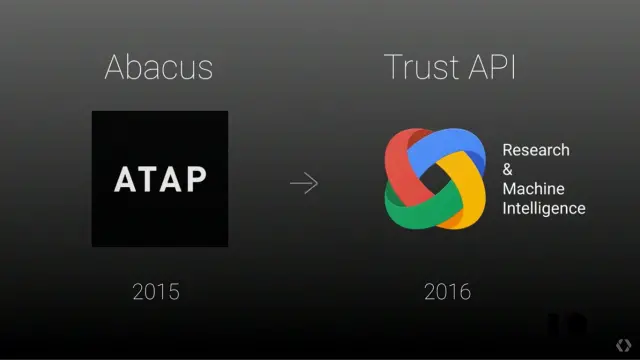There were so many different sessions and events at Google I/O 2016, it was practically impossible to make it into every single one. Luckily, Google records some of these sessions and uploads them to YouTube for everyone to check out after the fact. One of these sessions was from Google’s Advanced Technology and Projects (ATAP) team, and gave us some insight on their plans to get rid of passwords.
Backing up to Google I/O 2015, the ATAP team introduced Project Abacus, which allows Android to take different pieces of data and identify exactly who is holding the mobile device. Some of the data pieces would be how you walk, location patterns, how you talk and how you type.

Fast forward back to Google I/O 2016, and Project Abacus has evolved into a new project being called Trust API. The premise of Trust API is the same as Project Abacus, but a full year has passed and it has evolved even further than Google anticipated.
Google knows everyone hates entering ridiculously long passwords just to use services that are used every single day, but everyone needs to be protected. So the company is taking the necessary steps to provide a new solution that wouldn’t even require your mobile device to have a fingerprint scanner to be secure.
With the Trust API, the different data points would be collected and would formulate a ‘Trust Score’, and if your score was high enough, you can use your mobile device. In addition to formulating a trust score, the API can be used to create a different trust score threshold depending on which app you’re looking to access, making it more difficult to enter your bank app, but easier to use Twitter or Facebook.
The head of ATAP at Google, Dan Kaufman, stated during the session that Google will be approaching “several very large financial institutions” for more testing in June. As long as this series of tests prove to be viable, Google is expecting to give this new Trust API to Android developers “around the world by the end of the year”.
I, for one, am annoyed by how many times I have to re-enter my passwords and use my two-factor authentication app just to log into services every day. I can imagine others out there feel the same, and depending upon the findings during the testing period I would be interested to see exactly how the Trust API is integrated into the apps I use on a daily basis.
Drop us a line below and let us know what you think about Trust API, and whether it’s a moot point with the mass-adoption of the fingerprint scanner.











Comments